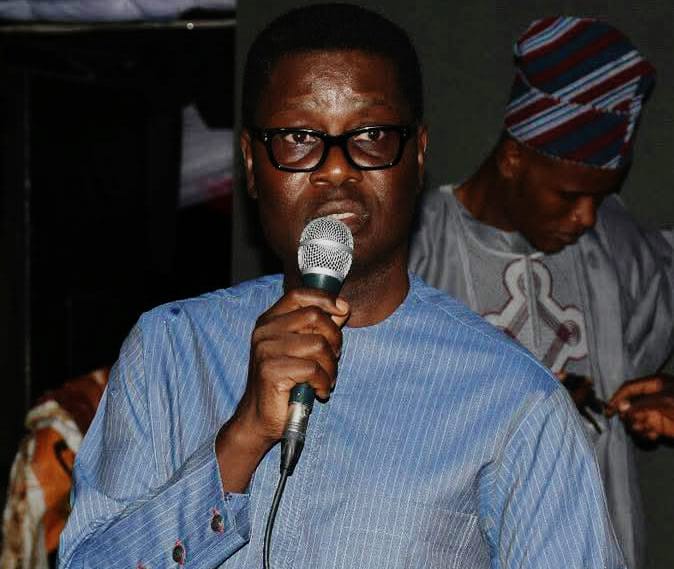By Roving Reporters, Akure
A former Ondo State Commissioner for Works and consulting engineer, Engr. Gboye Adegbenro, has blamed Nigeria’s deplorable road infrastructure on professional negligence, poor supervision, lack of maintenance culture, and policy discontinuity, rather than inadequate funding.
Speaking on the Crest Breakfast Show in Akure, Adegbenro said that while Nigerians often point fingers at government, engineers and consultants supervising the projects are the real culprits behind failing roads.
> “The problem is not the federal government. The problems are with the professionals. We are the ones causing all these issues,” he stated.
“Government releases money and mobilizes contractors, yet the roads fail within a short time. It’s about supervision and adherence to standards — and we, the engineers, have failed in that regard.”
—
‘Engineers Are Compromising Standards’
Adegbenro lamented that many engineers supervising federal and state road projects no longer uphold the ethics of their profession.
> “If soil tests, bitumen tests, and all the necessary quality checks are done properly, contractors will have no room to cut corners. But once the supervising engineers compromise, the contractors will do whatever they want,” he explained.
He cited several examples, including portions of the Otedola–Berger and Ife–Ilesa roads, which he said were already failing less than two years after completion.
> “Some roads constructed in the 1980s are still better than the ones done just a few years ago. The difference is in the level of supervision and professional integrity,” he added.
—
Government Funding Not the Problem
Contrary to public belief, the former commissioner said poor funding was not the main reason for substandard projects.
> “If government pays ₦30 million out of ₦100 million, that ₦30 million should still deliver a solid, lasting portion of road. Do what you can with quality and continue later,” he said.
“The problem is not the amount; it’s the honesty and professionalism of those handling the projects.”
He also accused some foreign contractors of exploiting weak local supervision to maximize profit at the expense of quality.
> “Most of the contractors are foreigners. They don’t care — they make their money and leave. But we Nigerians who use these roads are the ones suffering,” he said.
—
‘Maintenance Culture is Zero’
Adegbenro described Nigeria’s poor maintenance culture as “a national disaster,” warning that roads and infrastructure across the country will continue to deteriorate if urgent reforms are not made.
> “Our maintenance economy is zero. We don’t maintain roads, water, or electricity. We wait until roads collapse completely before fixing them,” he lamented.
He said agencies like the Federal Roads Maintenance Agency (FERMA) and the Federal Ministry of Works have engineers stationed in all states but rarely perform routine maintenance.
> “In the UK, they maintain roads constantly, even though their soil structure is weaker than ours. Here, we build, abandon, and rebuild every few years. That’s not progress,” he said.
—
Reckless Drivers Worsen Road Conditions
The engineer also blamed road users for contributing to accidents and the deterioration of road networks.
> “People drive recklessly without obeying traffic rules. Road markings and signs have disappeared. There are no pedestrian crossings, no warnings — and drivers do whatever they like,” Adegbenro said.
He urged the Federal Road Safety Corps and other relevant agencies to revive road signage, speed control, and public education campaigns to reduce accidents and preserve existing infrastructure.
—
‘Abandoning Projects Is a Waste of Public Funds’
Adegbenro warned that the habit of abandoning road projects by successive administrations was another major cause of infrastructural decay and waste of taxpayer money.
> “One government will start a road project and the next will abandon it just to start its own. That is wasteful and unpatriotic,” he said.
“There should be legislation compelling every administration to continue projects left by its predecessor. It’s the only way to achieve continuity and value for public spending.”
He noted that many road projects remain uncompleted because incoming governments claim the previous administration had already expended the funds.
> “If a road cost ₦400 million two years ago, it may now cost over ₦800 million. The smart thing is to continue from where your predecessor stopped, not start another one,” he advised.
—
Engineers Must Be Held Accountable
Proffering solutions, Adegbenro said engineers should be held personally accountable for any failed projects they designed or supervised.
> “If a road fails, the engineer should answer for it. In other countries, professionals lose their licenses for such failures. But in Nigeria, nothing happens,” he said.
He called for regular retraining, stricter licensing, and merit-based supervision of public projects.
> “Many inexperienced engineers are put in charge of billion-naira projects. We must train and monitor them properly if we want quality roads,” he concluded.

